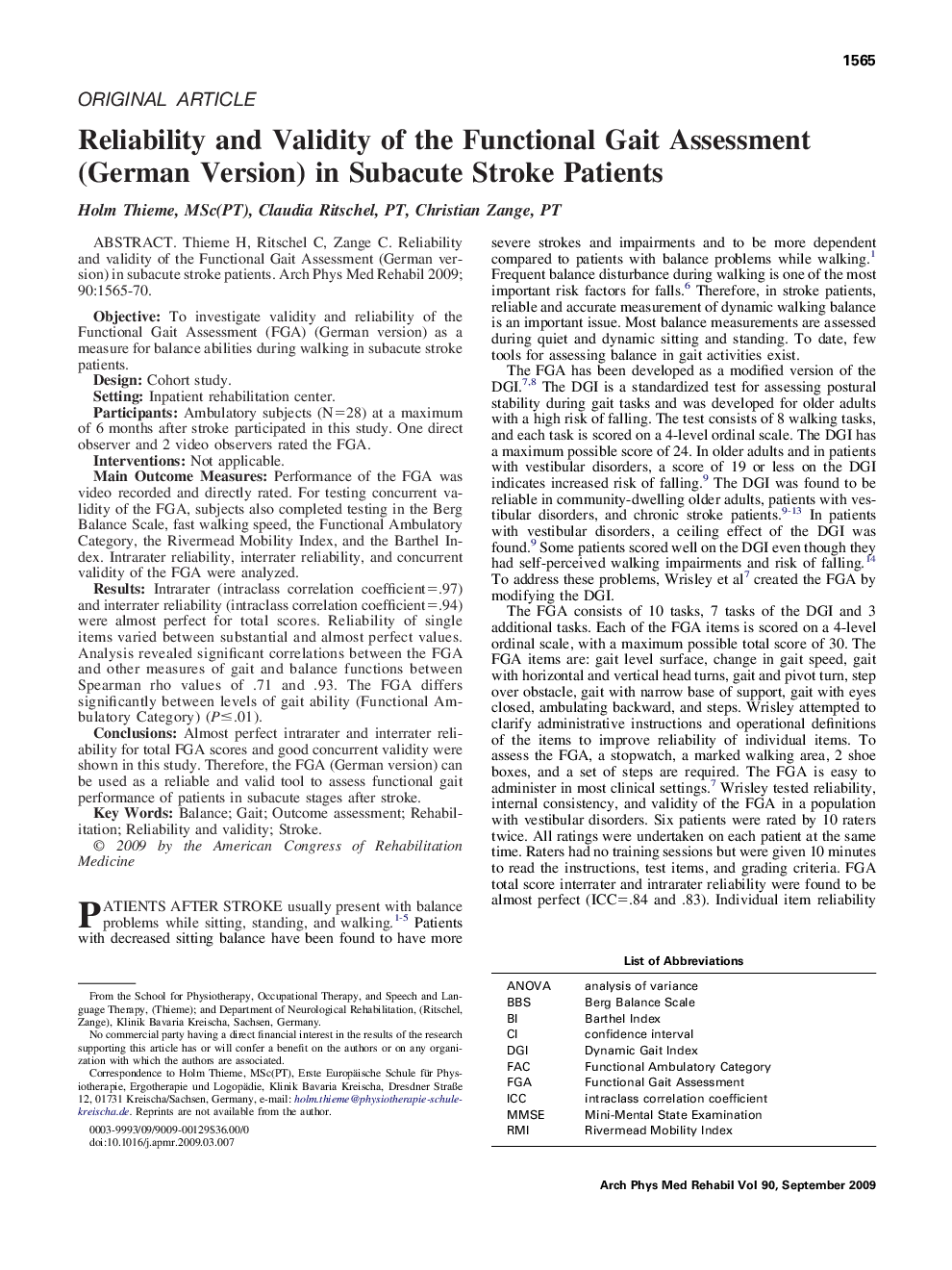| Article ID | Journal | Published Year | Pages | File Type |
|---|---|---|---|---|
| 3451826 | Archives of Physical Medicine and Rehabilitation | 2009 | 6 Pages |
Thieme H, Ritschel C, Zange C. Reliability and validity of the Functional Gait Assessment (German version) in subacute stroke patients.ObjectiveTo investigate validity and reliability of the Functional Gait Assessment (FGA) (German version) as a measure for balance abilities during walking in subacute stroke patients.DesignCohort study.SettingInpatient rehabilitation center.ParticipantsAmbulatory subjects (N=28) at a maximum of 6 months after stroke participated in this study. One direct observer and 2 video observers rated the FGA.InterventionsNot applicable.Main Outcome MeasuresPerformance of the FGA was video recorded and directly rated. For testing concurrent validity of the FGA, subjects also completed testing in the Berg Balance Scale, fast walking speed, the Functional Ambulatory Category, the Rivermead Mobility Index, and the Barthel Index. Intrarater reliability, interrater reliability, and concurrent validity of the FGA were analyzed.ResultsIntrarater (intraclass correlation coefficient=.97) and interrater reliability (intraclass correlation coefficient=.94) were almost perfect for total scores. Reliability of single items varied between substantial and almost perfect values. Analysis revealed significant correlations between the FGA and other measures of gait and balance functions between Spearman rho values of .71 and .93. The FGA differs significantly between levels of gait ability (Functional Ambulatory Category) (P≤.01).ConclusionsAlmost perfect intrarater and interrater reliability for total FGA scores and good concurrent validity were shown in this study. Therefore, the FGA (German version) can be used as a reliable and valid tool to assess functional gait performance of patients in subacute stages after stroke.
